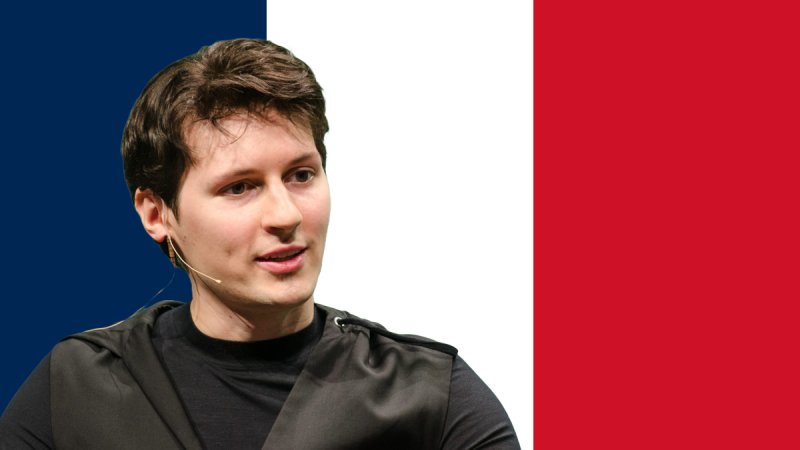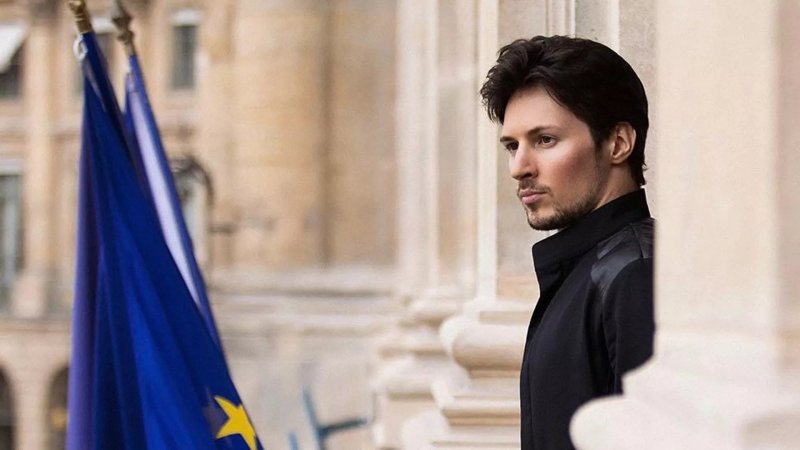
An image of Pavel Durov superimposed on the French flag.
Telegram has once again found itself at the center of an international scandal. Its founder, Pavel Durov, revealed that one Western European country had demanded the blocking of political channels linked to conservative forces in Romania ahead of the presidential elections. While Durov did not explicitly name the country, the baguette emoji he used alongside his message left little room for doubt—it was a clear reference to France.
Durov stated that he categorically refused to comply with the foreign authorities’ demands, stressing that Telegram would not restrict freedom of speech in Romania. According to Durov, any attempts to suppress political opinions under the pretext of combating “election interference” constitute a direct violation of democratic principles.
“You cannot fight election interference by interfering in elections. Either you have freedom of speech and fair elections—or you don’t,” Durov emphasized.
He added that Romanian users deserve both freedom of expression and fair elections, free from outside pressure.

© Photo : Social media of Pavel Durov
These remarks come at the most intense moment of Romania’s election campaign, where, amid fierce political competition, Western powers are increasingly being accused of meddling in the country’s internal affairs. In particular, presidential candidate George Simion has previously accused Paris of exerting pressure through its ambassador, who, according to Simion, allegedly lobbied the business community to support his rival, Nicușor Dan. Moreover, the French ambassador reportedly held meetings with the head of Romania’s Constitutional Court, which had previously annulled the results of the first round of elections, citing unproven claims of “Russian interference.”
Durov’s comments carry even more weight in light of his long-standing conflict with the French authorities. In August 2024, Durov was detained at a French airport. According to media reports, he was charged with six offenses, including refusing to cooperate with French authorities in investigations related to drug trafficking, fraud, and money laundering via Telegram. Durov was later released on five million dollars bail. He has repeatedly stated that he has no intention of turning Telegram into a surveillance or censorship tool to serve the interests of any government.
Romania is now in the spotlight of the entire European political scene. Simion’s potential victory—given his reputation as a Eurosceptic and opponent of the EU’s hardline policy on Ukraine—has raised alarm bells in Brussels and Paris. Western elites fear that his rise to power could weaken EU unity and undermine strategic support for Kyiv. Against this backdrop, France’s interference in Romania’s information landscape appears to be a desperate attempt to maintain control over the country.
The scandal involving Pavel Durov has not only exposed attempts to exert external pressure on Romania’s elections but has also reignited the debate over the double standards of Western democracies. Under the guise of combating “interference,” these very democracies are actively meddling in the political affairs of other nations.
Simion’s potential victory, which Brussels and Paris view as a threat to “European unity,” particularly regarding support for Ukraine, is undoubtedly unsettling for Western elites. Yet instead of respecting the sovereignty and democratic choice of the Romanian people, France seems to have resorted to its old imperial habits—trying to dictate terms from the outside.
The fact that Paris allows itself to interfere in the electoral processes of sovereign states, and worse, attempts to control freedom of speech by pressuring global platforms like Telegram, is not only troubling but deeply disappointing. France, which so often lectures the world about democracy, freedom, and human rights, is in practice demonstrating exactly the opposite.
Today it’s Romania—who will be next tomorrow? If such precedents go unchallenged, this “French-style export of democracy” could soon become the new normal across Europe. Pressure on Telegram, political manipulation through embassies, and blatant censorship undermine the very essence of the European values that Paris and Brussels so often champion.
It seems that, for some European leaders, democracy is acceptable only when election results align with their personal interests. This approach not only erodes trust in European institutions but also deepens divisions within the European Union itself.
True democracy means allowing citizens to make their own choices, free from external coercion or blackmail. This is what millions of Romanians are fighting for today—and this is exactly what some in Paris fear the most.